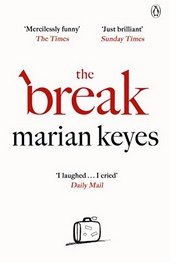I read six books in February.
Women and Power: A Manifesto by Mary Beard
Read for book group, and by chance the
group met on 8 February, the hundredth anniversary of the old boys allowing some
women to put a cross on a ballot paper. MB shows how history has treated
powerful women with examples ranging from the classical world to the modern
day, from Medusa and Athena to Theresa May and Hillary Clinton.
One story in particular made my blood boil.
As she loyally waits for her husband Odysseus to come home from the Trojan war Penelope’s
young son Telemachus takes it upon himself to tell her in front of a gathering:
‘ … go back up into your quarters … speech will be the business of men, all
men, and of me most of all … ’
I wonder if history would be different if,
instead of going meekly upstairs, Penelope had told him not to be so cheeky to
his mum.
Riding the Iron Rooster by Paul Theroux
Bought with a Christmas book token. I love
reading about train journeys and the master train-journey writer is Paul
Theroux. And I love reading about China after a visit there in 2011 so this is
a double-whammy as PT takes various trains across this vast country. None of
them sound at all comfortable so I was glad to be travelling only vicariously in his
company. His writing is so vivid – ‘The yak is a lovely long-haired animal,
like a cow on its way to the opera.’
He took this journey in 1988 – it would be
fascinating if he retraced his steps given the changes in the last thirty
years.
The Break by Marion Keyes
Bought in a charity shop. An interesting
premise: after being happily married to Amy for fifteen years Hugh, deeply
affected by the deaths of his father and a close friend, decides to take a
break and go travelling for a year – and also take a break from their marriage.
I’ve read all MK’s books and will continue
to do so but I wasn’t mad about this one. Amy’s dysfunctional family doesn’t
have the charm of the Walshes who appear in some of the earlier books, and
there are no hilarious set-pieces – my favourite is the beauty-parlour scene in
Sushi for Beginners.
My main gripe though is that there are so
many minor characters and a lot of them have such unusual/unusually spelt names
that they become a distraction: Steevie, Urzula, Druzie, Premilla, Thamyres, Raffie
(all women) to name but a few.
Maine by Courtney Sullivan
Bought in a charity shop. Regular readers
will perhaps remember that I am very keen on books set in New England. In other
books (and probably in real life) people who have wonderful summer houses on
New England beaches are monied – not that that makes them happy, usually quite
the opposite.
The more ordinary family in this contemporary book own two houses
built on land acquired in lieu of a debt fifty years ago, so now it is worth
mega bucks. None of them are very happy either, actually, or awfully likeable
apart from granddaughter Maggie – Alice, the matriarch, is a difficult mother
and mother-in-law and there are lots of untold secrets, the biggest one being
<spoiler alert> that Alice has made a will leaving the houses to the
local Catholic church. A bit of a find, Courtney Sullivan. Will read more.
Frightened myself to bits reading this late
into the night. It’s Scandi noir (set in Iceland) that is certainly très
noir. Excellent though,
very satisfying conclusion. May have to frighten myself again; this is the
first of a series.
Miss Blaine’s Prefect and the Golden Samovar by Olga
Wojtas
Fifty-something Shona McMonagle is clever at everything (yes, everything), and she’s
very practical and resourceful – as she would not hesitate to tell you herself
– being the product of the ‘finest education in the world’ at Marcia Blaine
School for Girls (readers of The Prime of
Miss Jean Brodie will recognise the reference).
When
Miss Blaine herself returns after a gap of many (many) decades to Edinburgh and
seeks out Shona in Morningside Library, she asks the former pupil to carry out
a mission for her – in 19th-century Russia. It turns out to be both a dangerous
and a wonderfully absurd mission and while the reader comes to suspect what’s
going on, Shona, for all her much-vaunted education, is oblivious until it’s
almost too late.
An absolute hoot (described by one Amazon reviewer as ‘Anna Karenina written by PG Wodehouse’) – I would urge you to make Shona’s acquaintance asap.
An absolute hoot (described by one Amazon reviewer as ‘Anna Karenina written by PG Wodehouse’) – I would urge you to make Shona’s acquaintance asap.






